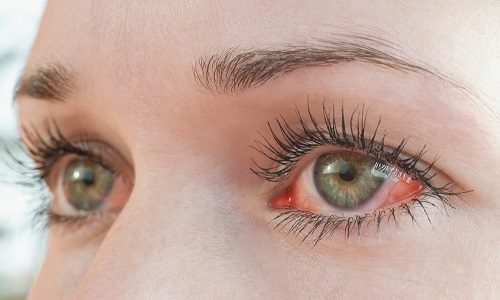
Staring at Your Computer Screen for Too Long
Many people believe that staring at a TV or computer screen for long periods of time can damage vision. While there is no evidence that this causes long-term damage, it can certainly cause short-term discomfort. Not giving your eyes a break can lead to digital eye strain, which is characterized by eye twitching, dry eyes, headaches and blurry vision. To avoid these symptoms, remember to take a break from using your computer, smartphone or other digital device every 20 minutes.
Not Following a Balanced Diet
Like the rest of your body, your eyes need nourishment in order to stay healthy and strong. An eye-friendly diet includes lots of green, leafy vegetables and foods rich in omega-3 fatty acids. Eggs, citrus fruits and carrots are also important to include in your diet. By eating these foods, you can decrease your risk for eye conditions such as cataracts and age-related macular degeneration.
Rubbing Your Eyes
When you rub your eyes, you run the risk of transferring harmful bacteria and viruses that reside on your hands into your eyes. Always wash your hands thoroughly with anti-bacterial soap before touching the area around your eyes.
Not Wearing Protective Eyewear
According to the American Academy of Ophthalmology, nearly 2.5 million Americans suffer eye injuries each year, and nearly one million have lost some degree of vision as a result. Daily tasks, such as yard work, can lead to both minor and major trauma to the eyes. Protect your eyes from potential accidents by wearing protective eyewear when doing household projects and activities. It is also crucial to wear protective eyewear when playing sports such as baseball and racquet sports. Additionally, when outside you should always wear sunglasses that block 100 percent of harmful UV rays.
Ignoring Changes in Your Vision
Have you noticed your vision has become blurry or cloudy lately? Do you have a hard time reading street signs when driving at night? Changes in your vision may be a sign that you need corrective eyewear, or a sign of an underlying eye condition and should be addressed immediately by your eye doctor.
If you are experiencing blurry or cloudy vision or are interested in learning about our laser vision correction procedures, contact Optima Eye today. Please email us at mmandel@optimaeye.com.


